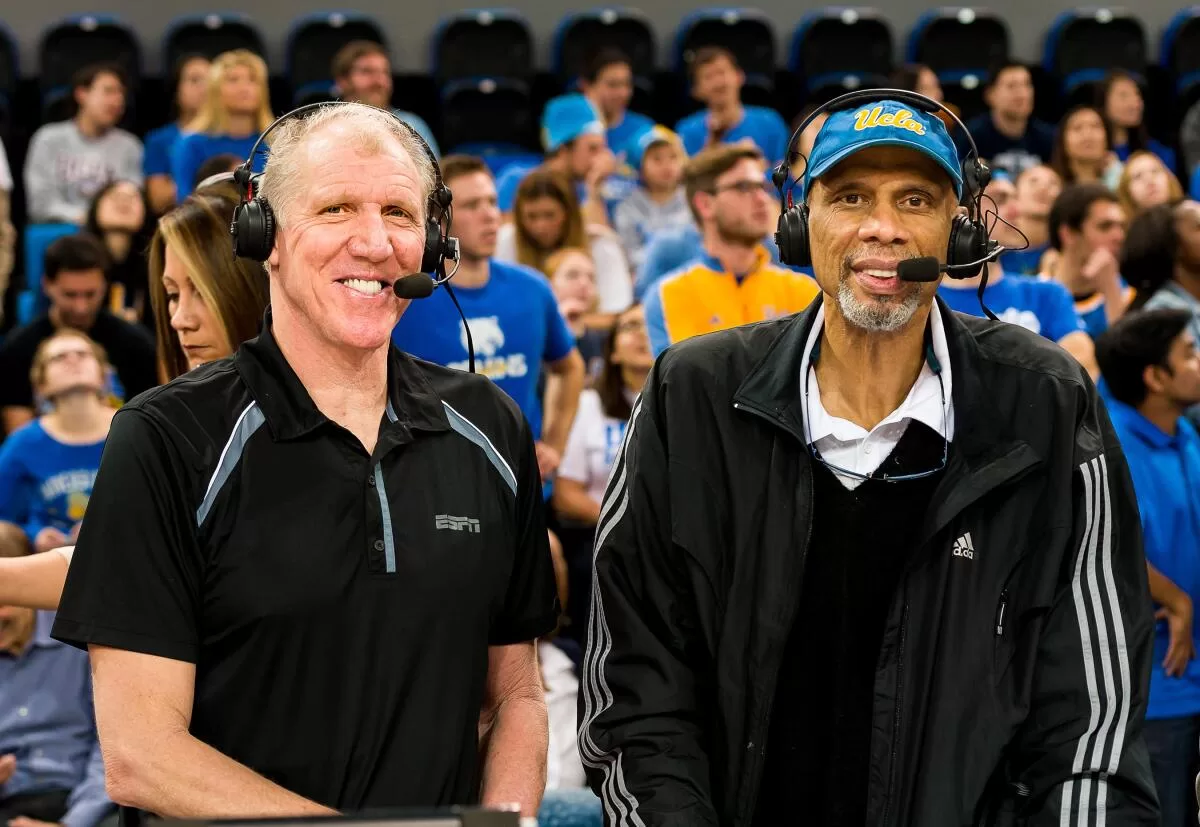But Walton had a different definition for personal success, one derived from the teachings of John Wooden, his legendary coach at UCLA.
“The last lesson of life that John Wooden taught us was the measurement of success,” Walton said three years ago, “which he described — and now I comprehend and buy into — is success is the peace of mind that comes with the self-satisfaction of knowing that you’ve done your best.
“It’s really easy to say that, but incredibly hard to accept it, embrace it and believe it.”
Walton, the three-time national college player of the year who went on to win two NBA championships, died of complications from cancer Monday at his home in San Diego. He was 71.
I was interviewing Walton as part of a 2021 story about the San Diego Padres and their hopes in emerging from the long shadow of the Dodgers. I spoke to a lot of San Diegans, among them Walton and filmmaker Cameron Crowe, about their love of the city and its sports teams.
Walton spoke at length about the Padres, the Chargers and his memories of growing up in La Mesa. He had deep affection for Los Angeles too, having won two national championships — and three national college player-of-the-year awards — with the Bruins. What’s more, his son, Luke, played for and coached the Lakers.
“I don’t live in a qualitative, binary-decision-making world where you’re one or the other,” Walton said when asked which Southern California city he preferred. “I’m the luckiest guy in the world. I know all the Dodgers too.”
Then again, Walton didn’t mind sounding like a spokesman for the San Diego Chamber of Commerce.
“Don’t try to drive from Los Angeles to San Diego at any time because everybody from up there is trying to get down here,” he said with a laugh.
(Scott Chandler / UCLA Athletics)
“We’re very proud of San Diego. Best beaches, best air, best bicycling, best water, fantastic airport. And everything you could possibly imagine. Incredible facilities, incredible nature, and bordered by the ocean, by Mexico, by Camp Pendleton, by the mountains, which lead to the desert. And it’s all so easily accessible to San Diego.”
Among his fondest childhood memories was watching the Padres, then of the Pacific Coast League, play their home games at Westgate Park, which is now Fashion Valley Mall. He was a pro at chasing down baseballs that left the park.
“When certain guys would come up, I’d say, well, this guy, he’s a left-handed, pull hitter, so I’m going to get in the right-field bleachers along the first baseline. But then when Tony Perez would come up, man, I’m going out into the outfield and I’m going to get that home run ball.”
Foreshadowing a career of sacrificing his body for loose basketballs, he said: “I was quick to that baseball and I was nine and 10 years old. I was not reluctant to jump over the chairs to get to the ball that was bouncing around in the bleachers.”
Walton was 9 when the Chargers relocated to San Diego after their inaugural season in Los Angeles.
“I used to go to the old Balboa Stadium, which is just a half-mile from our house where we live now, where the Chargers used to play on the weekends,” he said. “And I’d go to those games, and when you’re a little tiny boy with red hair and a buzz cut, man, the ushers and the ticket takers were always more than kind to little Billy.”
He said his parents weren’t sports fans, “but they were the greatest parents ever.” And although he didn’t grow up with a television in the home, he remembers tuning in to games on his transistor radio and listening under the covers.
“I listened to Padre games,” he said. “I listened to Dodger games with Vin Scully. I listened to Laker games with Chick Hearn. And then I was most fortunate to come to UCLA and get to know all these people personally.
“I found all these incredible sports heroes as a child. It’s one thing to have a hero. It’s another level to meet that hero, to get to know that hero, and to become friends with that hero and to discover that they’re even better people than you imagined and hope for. And that has been the story of my life.”
Many people might say the same about Walton.
“That’s their choice,” he said. “I try my best to be my best, and I understand the responsibility of the chosen hero to be kind, to be generous, to be open, to be willing. Because I was that guy who was looking. I was looking through that fence.”
